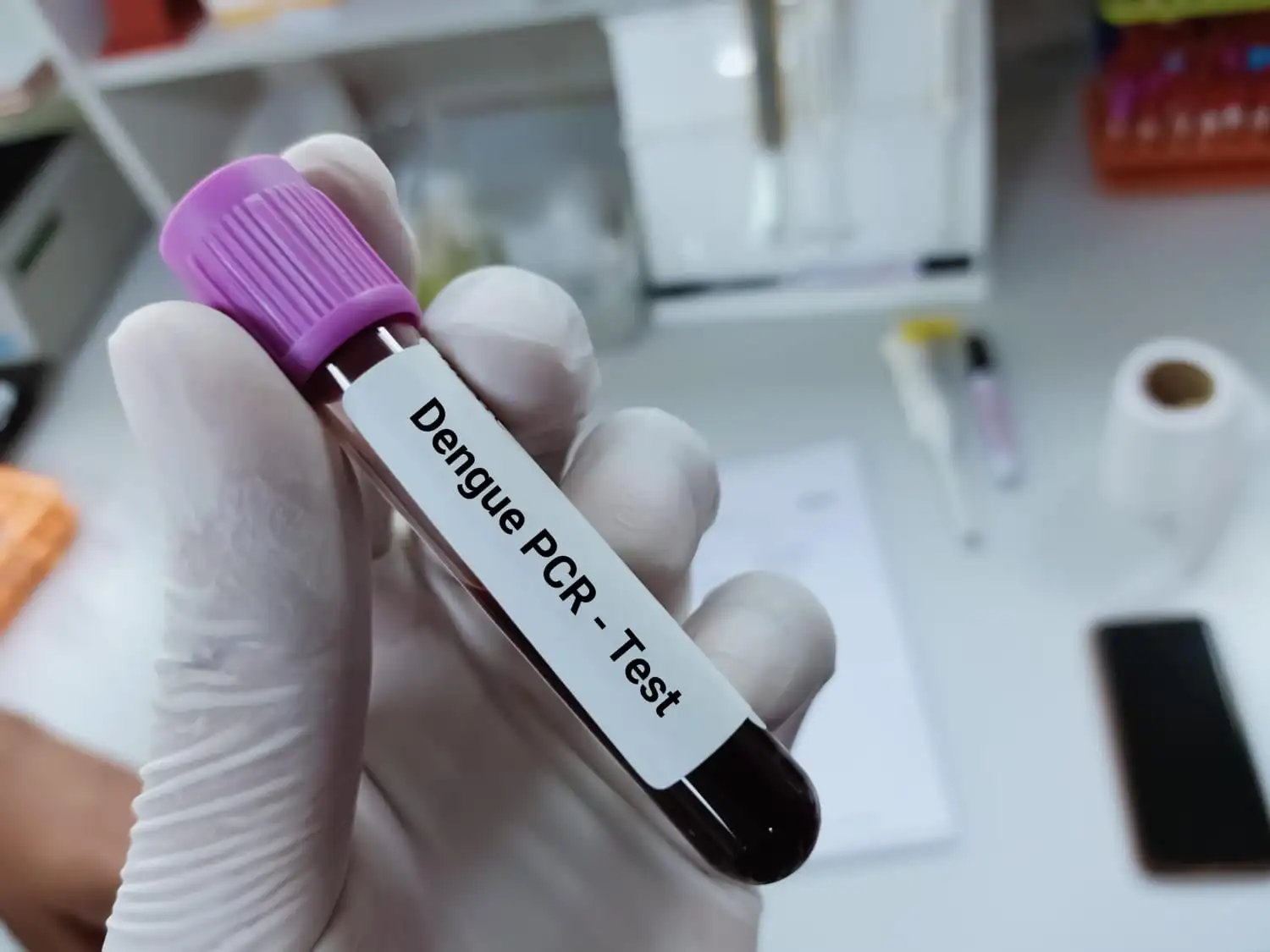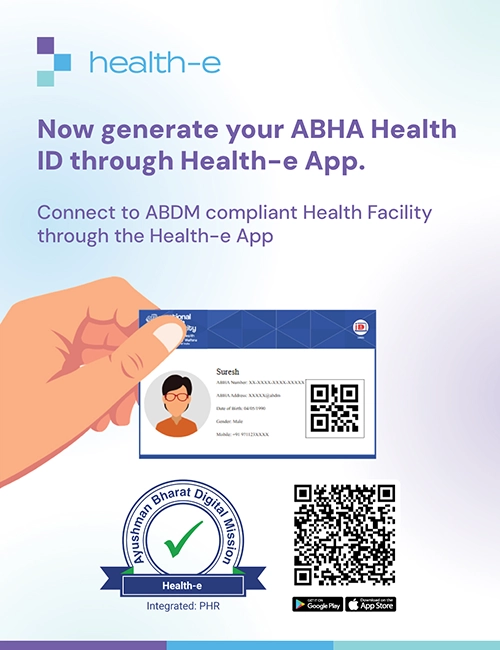Medically reviewed by Dr Rohan J Harsoda – MBBS, DNB(General Surgery)
Did you know that a seemingly harmless mosquito bite can actually lead to a great deal of suffering? Mosquitoes, those pesky little insects, have the ability to transmit serious illnesses such as malaria and dengue. In particular, dengue is a viral infection that is contracted through a mosquito bite, and its symptoms can be quite similar to those of the flu. Imagine experiencing a high fever, body aches, fatigue, a weakened immune system, and a decrease in your platelet count. All of this can be attributed to a single mosquito bite.
The specific type of mosquito responsible for spreading the dengue virus is known as Aedes aegypti. These mosquitoes serve as carriers for the virus, transferring it from one person to another. Detecting the presence of antibodies against the dengue virus requires a dengue test, which plays a crucial role in diagnosis.
In this blog, we will delve deeper into the world of dengue and explore various aspects of the disease, including its symptoms, transmission, and the importance of dengue testing. Additionally, we will also shed light on the cost of dengue tests, so you can be better informed about this critical aspect of disease management. Join us as we uncover all you need to know about dengue and the price of dengue testing.
What are the Dengue Symptoms?
Dengue symptoms typically appear within a period of 3 to 10 days after being bitten by a mosquito carrying the virus. The common symptoms associated with dengue fever include:
- High-grade fever
- Chills
- Severe headache
- Muscle and joint pain
- Eye pain
- Red rashes on the chest and upper limbs
- Abdominal pain
- Loss of appetite
- General feeling of illness
In most cases, these symptoms resolve within 5 days. However, for some individuals, the infection can become severe and lead to life-threatening complications such as dengue hemorrhagic fever and dengue shock syndrome. It’s important to seek immediate medical attention if you experience any of the following severe dengue symptoms:
- Persistent nausea and vomiting
- Vomiting blood
- Severe abdominal pain
- Profound fatigue
- Bleeding from the gums
- Rapid breathing
- Sudden drop in blood pressure
- Seizures
It is important to note that the presence of these symptoms alone does not confirm a dengue diagnosis. A doctor will typically recommend a dengue profile test to confirm the presence of the infection.
What are the Causes of Dengue?
Dengue fever is a viral illness caused by the dengue virus, primarily transmitted through the bite of infected mosquitoes, particularly the Aedes species. There are several factors that contribute to the causes of dengue. One of the main factors is the presence of stagnant water, which serves as breeding grounds for mosquitoes. These can be found in various places such as discarded tires, uncovered water containers, and poorly maintained water storage areas. Additionally, rapid urbanization and inadequate waste management systems can exacerbate the accumulation of stagnant water, increasing the risk of mosquito breeding and dengue transmission.
Another significant factor is the movement and migration of infected individuals or mosquitoes from dengue-endemic regions to non-endemic areas, introducing the virus to new populations. Furthermore, climate plays a role in dengue transmission as the Aedes mosquitoes thrive in warm and humid environments, making tropical and subtropical regions more susceptible to outbreaks.
Finally, lack of awareness, inadequate vector control measures, and insufficient healthcare infrastructure contribute to the persistence and spread of dengue. Overall, a combination of environmental, social, and biological factors interplay in the causes of dengue, making it crucial to implement comprehensive strategies for prevention and control.
Dengue Fever Treatment
The diagnosis of dengue fever often involves a series of blood tests due to the intricate and dynamic immune response triggered by the virus. Various laboratory tests are used, including:
- Molecular Tests for Dengue Virus (PCR): These tests aim to identify the presence of the dengue virus itself. By detecting the genetic material of the virus, PCR tests can diagnose dengue fever within a week after the symptoms begin. Moreover, they can provide valuable information about the specific serotype of the dengue virus responsible for the infection. This knowledge aids in tailoring the treatment approach accordingly.
- Antibody Tests (IgM and IgG): Antibody tests focus on detecting the antibodies generated by the immune system when an individual has encountered the dengue virus. These tests yield the best results when conducted at least four days following exposure. By analyzing the presence of specific antibodies, healthcare professionals can determine whether a person has been previously exposed to the virus, assisting in confirming the diagnosis.
- Complete Blood Count (CBC): The complete blood count test is employed to assess various components of the blood. One crucial aspect is the platelet count, which tends to decrease during the later stages of dengue fever. Monitoring platelet levels is essential as low platelet count can lead to bleeding complications. Additionally, the CBC helps identify changes in hemoglobin, hematocrit, and red blood cell count, indicating the presence of anemia, often associated with severe dengue fever.
- Basic Metabolic Panel (BMP): The basic metabolic panel test is conducted to evaluate kidney function and detect signs of dehydration, which can arise during severe dengue illness. By assessing the levels of various electrolytes and substances in the blood, healthcare providers can monitor the impact of the virus on the kidneys and address any dehydration-related concerns promptly.
Through the combination of these blood tests, medical professionals can obtain comprehensive information necessary for diagnosing and managing dengue fever effectively. The collective results contribute to a thorough understanding of the patient’s condition, aiding in the provision of appropriate care and treatment.
What is Dengue Test Procedure?
In order to conduct a dengue test, a skilled healthcare provider will procure a sample of blood, typically extracted from a vein in the arm. This collected sample is subsequently dispatched to a laboratory where it undergoes a thorough analysis. The choice of the specific test method employed is contingent upon the facilities at hand as well as the particular stage of the infection being investigated.
What is Dengue Test Price?
In India, the cost associated with a dengue test can fluctuate based on several factors, including the type of test, the geographical location of the testing facility, and any supplementary services offered. Typically, the price range for a dengue test in India falls within ₹500 to ₹3000 or beyond.
However, it is crucial to acknowledge that these figures are approximate and subject to variation. To obtain the most precise and current information regarding the cost of a dengue test in your particular region of India, it is advisable to reach out to a local healthcare provider or laboratory. They will be able to provide you with the most accurate details tailored to your location.
Final Thoughts
Early detection and prevention of dengue is crucial to avoid the spread of this dangerous disease. By taking simple steps such as keeping our surroundings clean and getting tested at the first sign of symptoms, we can protect ourselves and those around us from the severe consequences of dengue. As a responsible individual, let us do our part in preventing the spread of dengue by being vigilant and proactive. It is also recommended that you store all your health reports and prescription online on Health-e so you can access them anywhere. This will ensure that you have easy access to your information and can receive prompt medical attention when needed. So why wait? Take control of your health today and start using Health-e!





